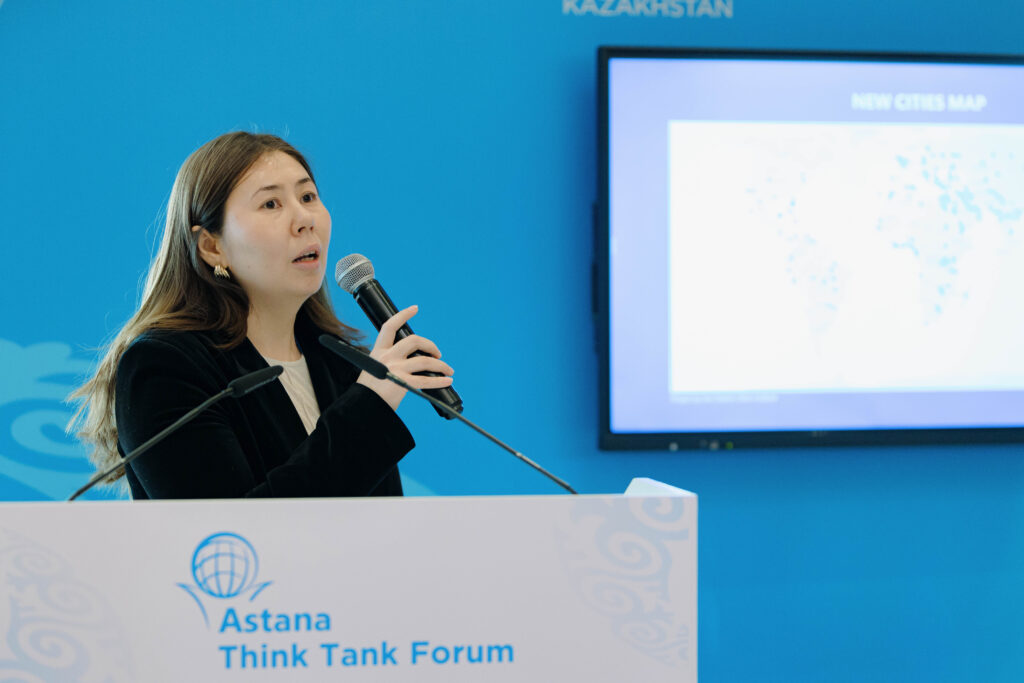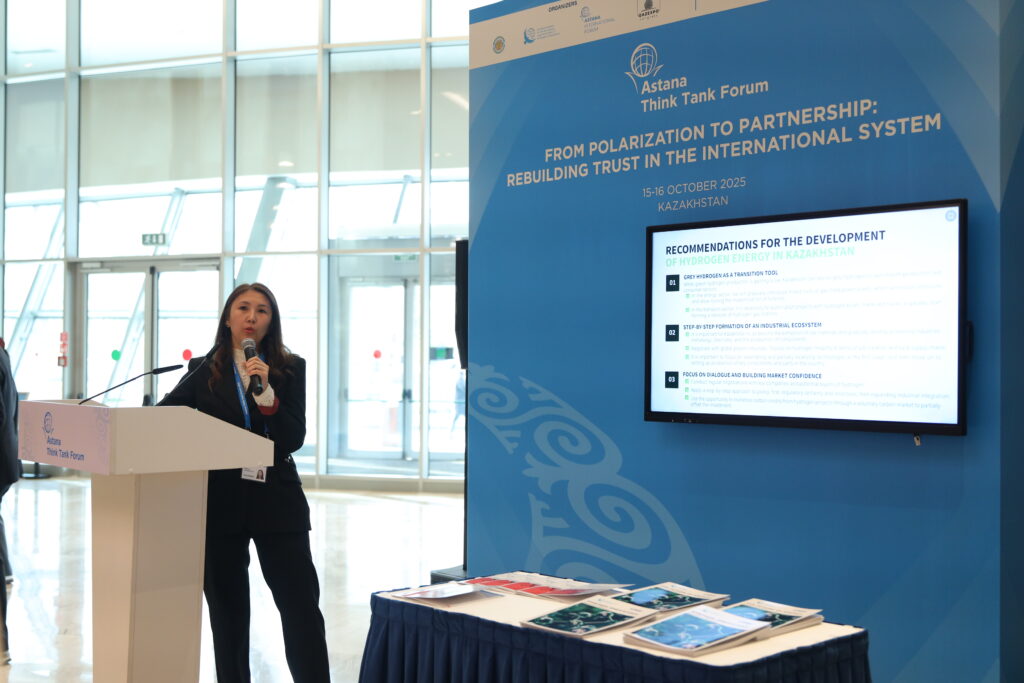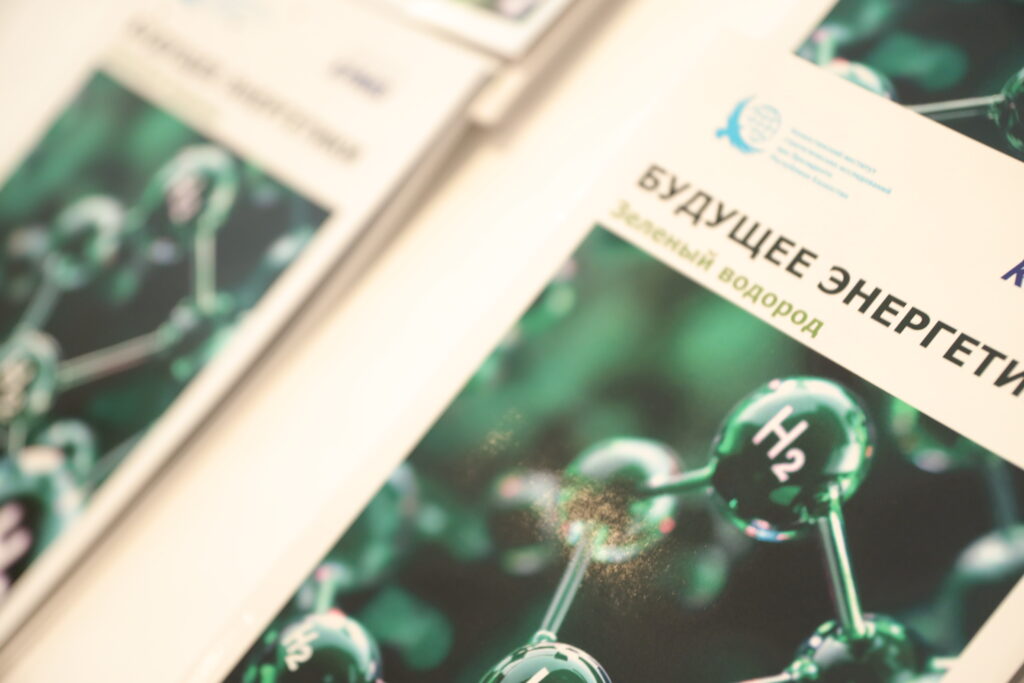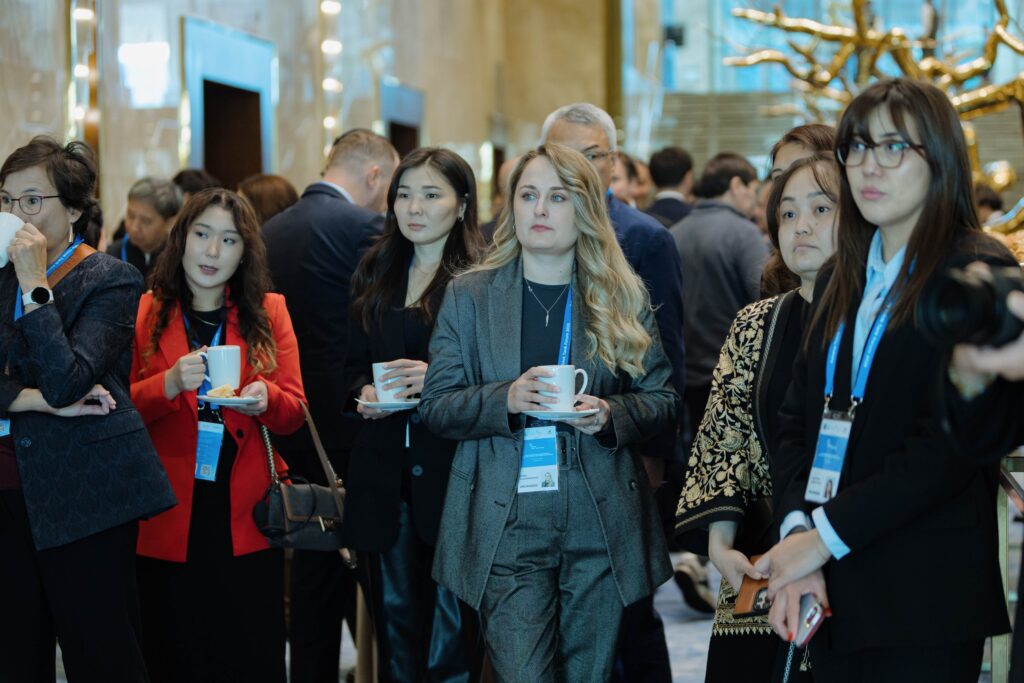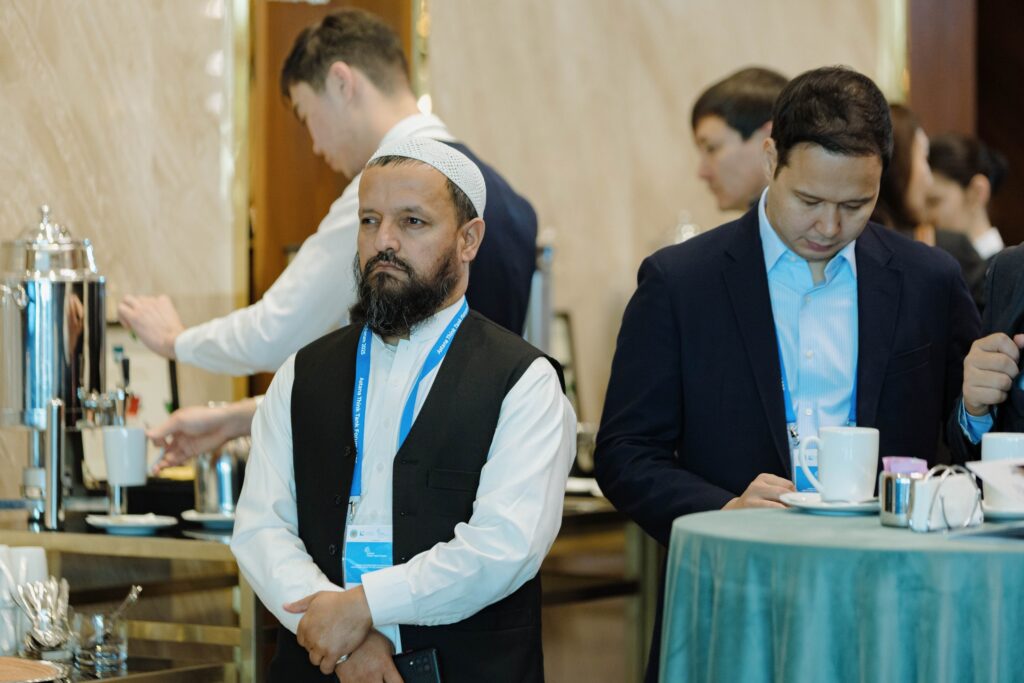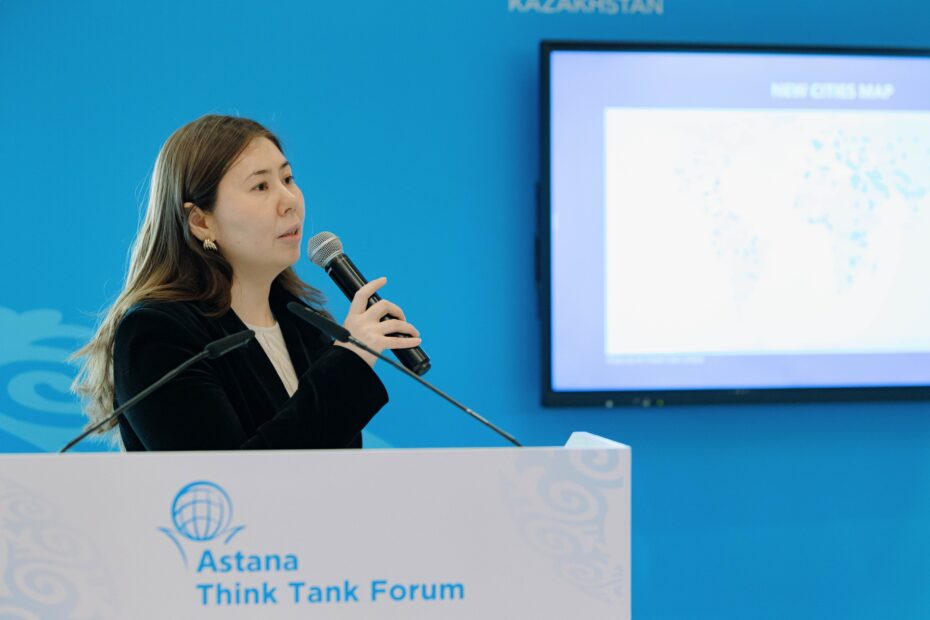As part of the Astana Think Tank Forum 2025, a series of in-depth side events continued, focusing on key areas of sustainable development in Kazakhstan, ranging from urban planning and demographic trends to the prospects of green energy.
The first side event featured the presentation of the analytical study “New Cities: Lessons Learnt for Alatau City”, prepared by Zhandos Shaimardanov, Director of the Kazakhstan Institute for Strategic Studies (KazISS) under the President of the Republic of Kazakhstan, and Amina Urpekova, Head of the Regional Affairs Department at KazISS.
The report was published on InsightsCentral.Asia, a new digital knowledge platform launched by KazISS ahead of the Astana Think Tank Forum 2025.
Presenting the study, Amina Urpekova emphasized that it provides a comprehensive analysis of global experiences in creating new cities and their relevance for Kazakhstan and Central Asia. Special attention was given to the Alatau City project, considered the largest urban initiative in Kazakhstan in recent decades.
The study highlights managerial and political lessons applicable to Alatau’s development: balancing government leadership with private initiative, ensuring legal predictability, and combining technological advancement with social inclusivity and environmental sustainability.
The second side event brought together presentations of two analytical reports by KazISS in collaboration with UNFPA: “Demographic Resilience as a Strategic Driver of Development: Prospects for Kazakhstan” and “The Future of Energy: Green Hydrogen.”
The demographic resilience report was presented by Anna Alshanskaya, Head of the Department of Economic Policy Analysis at KazISS. The study examines trends in fertility, mortality, and migration, as well as the impact of demographic factors on the country’s socio-economic development. Special attention is given to the need for balanced solutions that integrate economic, social, and environmental aspects to strengthen Kazakhstan’s human capital.
The green hydrogen report was presented by Bibigul Omirbayeva, Chief Expert of the Department of Economic Policy Analysis at KazISS. The study analyzes the global hydrogen market, key international projects and strategies, and Kazakhstan’s potential in developing a new energy sector.
All analytical reports presented at the Astana Think Tank Forum 2025 are published on InsightsCentral.Asia, a digital platform designed to integrate, share, and promote analytical and academic research on Central Asia.
The series of side events at ATTF 2025 has become an important part of expert exchange, bringing together scholars, analysts, and representatives of state institutions to discuss priority areas of sustainable development in Kazakhstan and the broader Central Asian region.
